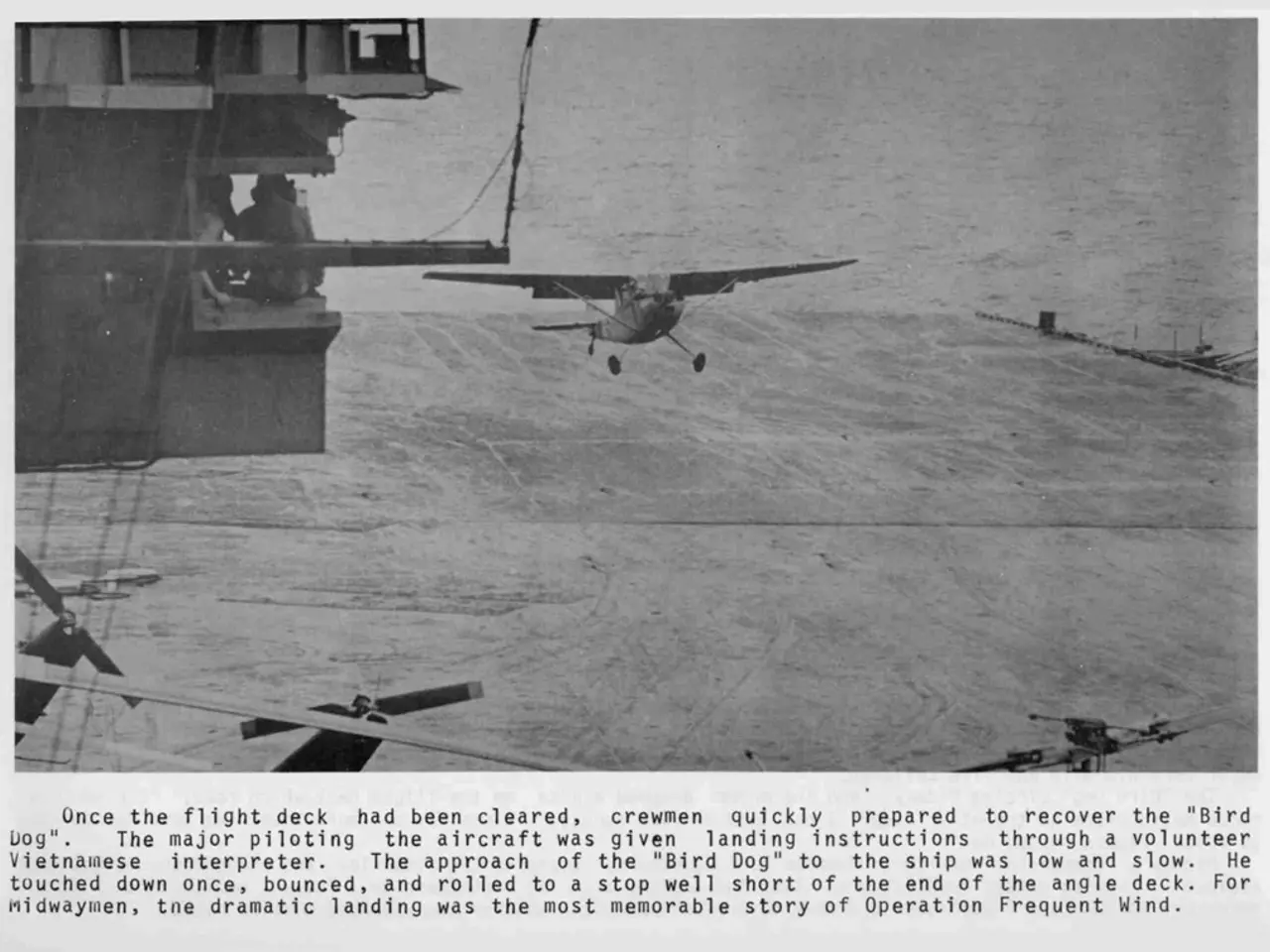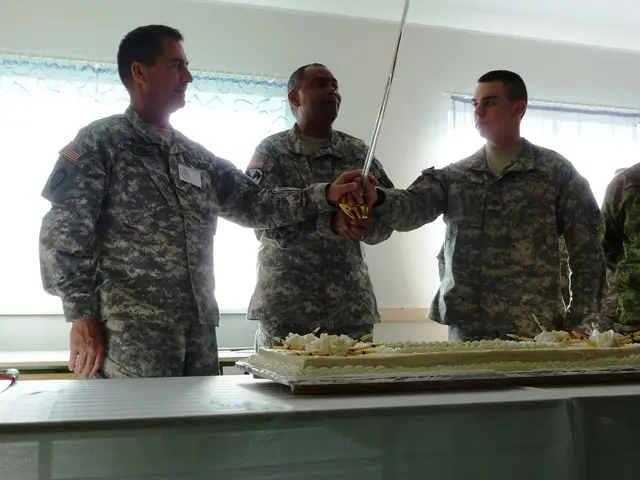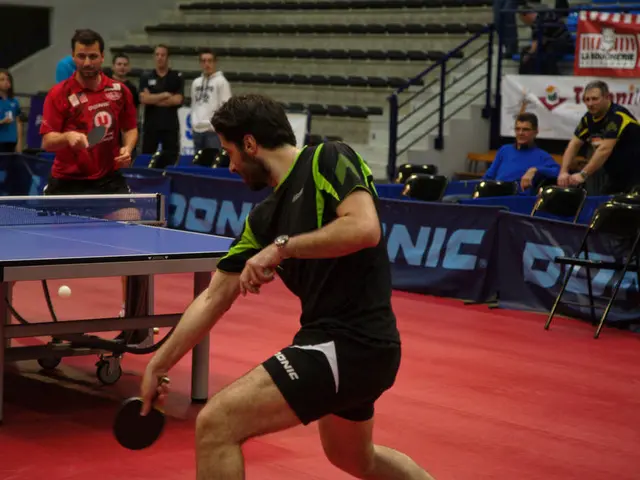Moscow disputes the claims of intruding airspace
In a series of recent events, NATO allies have been on high alert due to a string of Russian airspace violations and attacks on Ukraine. Last weekend, Russia launched another massive air strike on Ukraine, resulting in three fatalities and dozens of injuries, according to Ukrainian President Volodymyr Zelensky.
In response to these incidents, Italy provided F-35 fighter jets stationed at the NATO base in Ämari on Estonia's north coast to intercept and escort Russian fighter jets over the Baltic Sea. This swift action by the Italian air force was a part of NATO's ongoing efforts to secure the Baltic airspace, as the countries bordering Russia – Estonia, Latvia, and Lithuania – do not have their own fighter jets.
Estonia itself reported a violation of its airspace by three Russian fighter jets near Vaindloo, without permission, for a total of twelve minutes. The aircraft did not transmit flight plans, had their electronic identification turned off, and did not maintain radio contact with Estonian air traffic control. In response, Estonia requested consultations under Article 4 of the NATO treaty, which provides for consultations with allies if a NATO country feels threatened from the outside.
However, the Russian Ministry of Defense denies Estonia's claim that three Russian fighter jets violated its airspace over the Baltic Sea. According to them, the MiG-31 jets did not violate Estonian airspace and did not deviate from the agreed flight route.
Similar incidents have occurred in Poland, with the Polish army announcing that Polish and allied combat aircraft had taken off in response to attacks on Ukraine in the border area. Ground-based air defense was put on "highest alert." Last week, a large number of drones entered the airspace of Poland during a Russian air strike on Ukraine, with some of the drones being shot down by the Polish air force and other NATO allies for the first time.
These incidents have caused unrest among NATO allies in Europe, with talk of provocation. Ukrainian President Volodymyr Zelensky described the incidents in Estonia and Poland as a systematic Russian campaign against Europe, NATO, and the West, requiring a systematic response. Warsaw also requested NATO consultations under Article 4 following the incident, and there were further incidents in which suspected Russian drones were allegedly deliberately flown over Poland and Romania.
Despite these challenges, NATO continues to stand united in the face of Russian aggression, ensuring the safety and security of its member countries. The alliance's quick and decisive actions serve as a deterrent to further provocations and a commitment to upholding peace and stability in the region.
Read also:
- United States tariffs pose a threat to India, necessitating the recruitment of adept negotiators or strategists, similar to those who had influenced Trump's decisions.
- Weekly happenings in the German Federal Parliament (Bundestag)
- Southwest region's most popular posts, accompanied by an inquiry:
- Discussion between Putin and Trump in Alaska could potentially overshadow Ukraine's concerns








